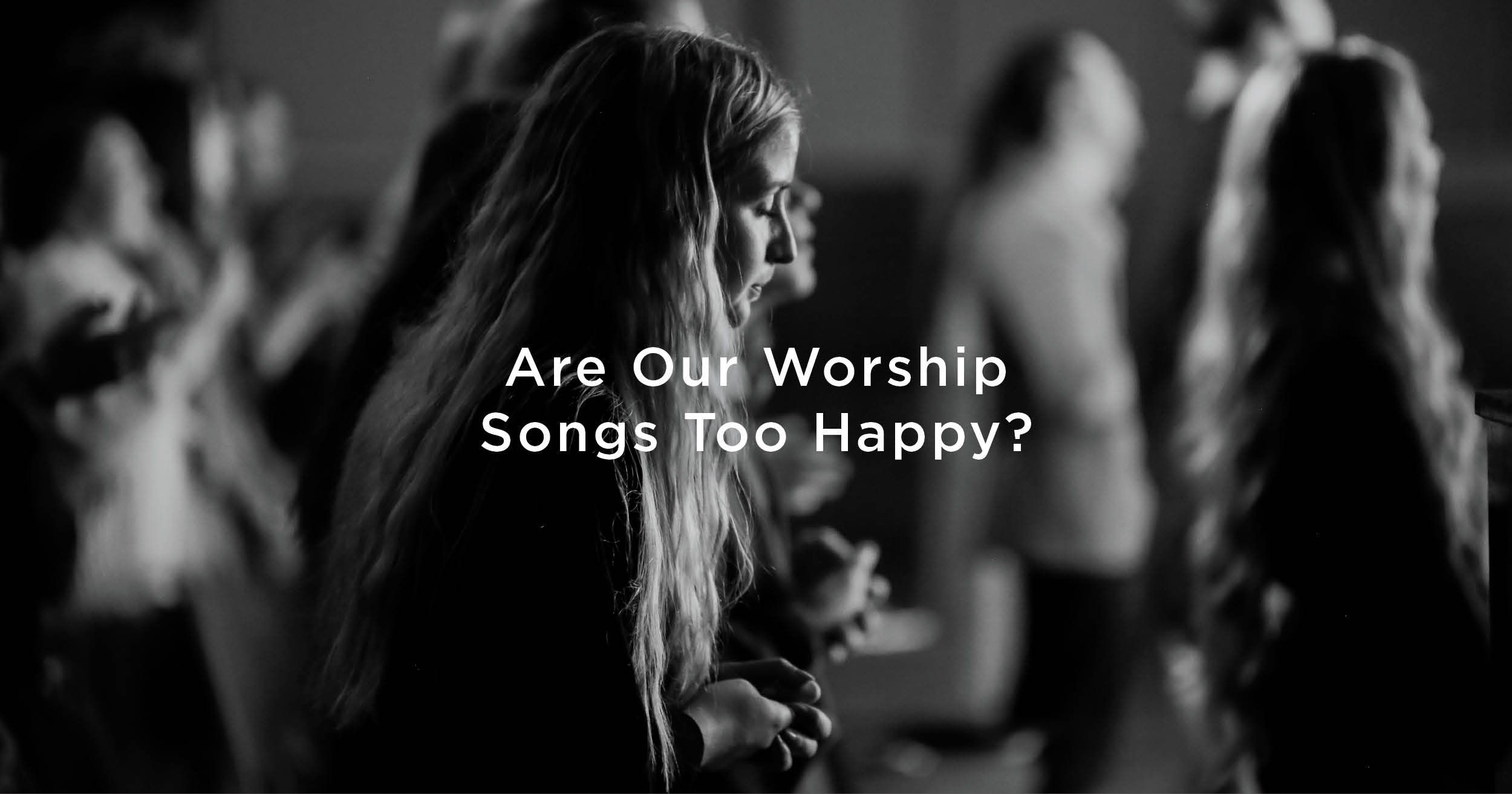
It’s unfortunately common to hear that church is one of the hardest places to be in the midst of hardship. Maybe you have limped into church, weighed down by things like sadness, fear, or disappointment. Yet the place you hoped to find healing and refuge left you feeling hurt and alone. As the body of Christ joined together in praise, you felt dislocated in your pain.
This is not how it’s supposed to be. The church is meant to be a place of sorrowful joy, where we not only “rejoice with those who rejoice,” but also “weep with those who weep” (Romans 12:15).
We’re going to think about lament at the communal level. Faithful groaning is not only meant for private conversations with the Lord. The Bible urges us to seize hope through honest worship, together. Sorrow belongs in the sanctuary.
If you want to know how our ancestors worshiped, listen to the Psalms.
This is the hymnbook of God’s people.1 And the Psalms are still meant to shape our worship today. Paul commands believers to sing “psalms and hymns and spiritual songs” when they gather (Colossians 3:16; Ephesians 5:19).
Listen closely to the psalmists’ songs and you will hear something strikingly different from ours: their corporate worship expressed an overwhelming amount of struggle.
Weeping and wrestling take up much of this songbook’s playlist. In fact, the largest category of psalms is songs of lament—accounting for over a third of the book (see this free Bible-reading plan). One out of every three songs in the Psalms is a hymn of heartache. God’s people sang often about pain, confusion, and trouble.
Listen closely to the psalmists’ songs and you will hear something strikingly different from ours: their corporate worship expressed an overwhelming amount of struggle.
This may surprise you, since the goal of worshiping God is, as one modern songwriter and worship leader has put it, to “magnify his greatness.”2 Cries and complaints don’t seem appropriate for Sunday morning. It may be one thing to wrestle privately with God, but it hardly feels holy to sing publicly about despair and difficult questions. Yet the Bible puts songs of anguish alongside songs of adulation. Both are to be brought to God because both bring him glory.
The fact that the title of the book, Psalms, means “Praises,” teaches us that “the whole range of the psalms—from adoration and thanks to the needy cry for help (even the desolate moan of Psalm 88)—praises God when offered to him in the gathered worship of his people.”3 In other words, lament is not something we do before we can worship. Lament is worship.
But a close look reveals that our worship today tends to stay on the mountain top. Several surveys show that lament has been fading from worship for generations. A comparison between mainline hymn books and the Psalms led the researcher Glenn Pemberton to conclude that “we have almost completely lost the biblical language of lament ... it has become a curious museum piece in our Bibles. Expressions of unresolved pain, confusion, desperation, and sorrow—in other words, lament—are nearly extinct.”4
The Bible puts songs of anguish alongside songs of adulation. Both are to be brought to God because both bring him glory.
The pattern continues with new songs. Study the top charts of worship music and you will be struck by the absence of psalm-like wrestling. Positive proclamations and confident celebrations dominate our lyrics. The exceptions—the two things we do lament—are our own sinfulness and Jesus’ suffering. Of course, both of these merit our sorrow. But sufferers can be left thinking that they either need to repent of their sin or rejoice that their suffering will never be as bad as Jesus’.
So what, specifically, is present in the Psalms yet missing in our worship?
Consider the four rhythms of lament in comparison to the songs that you sing on Sunday: pain, protest, petition, and groaning.
It’s important to note that lament’s omission has not been intentionally devised by any individual or group. It’s not as though believers attend church with the aim of excluding others’ sorrow. Nor do I suggest that songwriters have purposefully ignored sufferers. And I certainly don’t want to give the impression that all our pastors and worship leaders are guiding us into false or ungenuine faith.
As Old Testament scholar Walter Brueggemann stresses, “a church that goes on singing ‘happy songs’ in the face of raw reality is doing something very different from what the Bible itself does.”
But we can’t ignore the reality that Bible-informed wrestling is often left out of our worship gatherings. And we struggle to shape our services in a way that provides space for the kind of honesty we see in Scripture.
If we acknowledge this, and understand the power and purpose of corporate groaning, we can take steps to recover our heritage of honest worship.
This is an excerpt from Just Be Honest: How to Worship through Tears and Pray without Pretending by Clint Watkins. Grab a copy for more help to voice your heartache to the Lord and experience genuine hope and joy amidst grief and pain, whether individually or as a congregation.
1 To be clear, the book of Psalms is more than a hymnbook—these prayers and songs tell the story of God’s people and their hope in a suffering King, ultimately pointing to the person and work of Jesus (Luke 24:44).
2 Bob Kauflin, Worship Matters: Leading Others to Encounter the Greatness of God (Crossway, 2008), p 66.
3 The ESV Study Bible (Crossway Bibles, 2008), p 935.
4 Pemberton, Hurting with God, p 39.
5 Walter Brueggemann, Spirituality of the Psalms (Augsburg Fortress, 2002), p 23